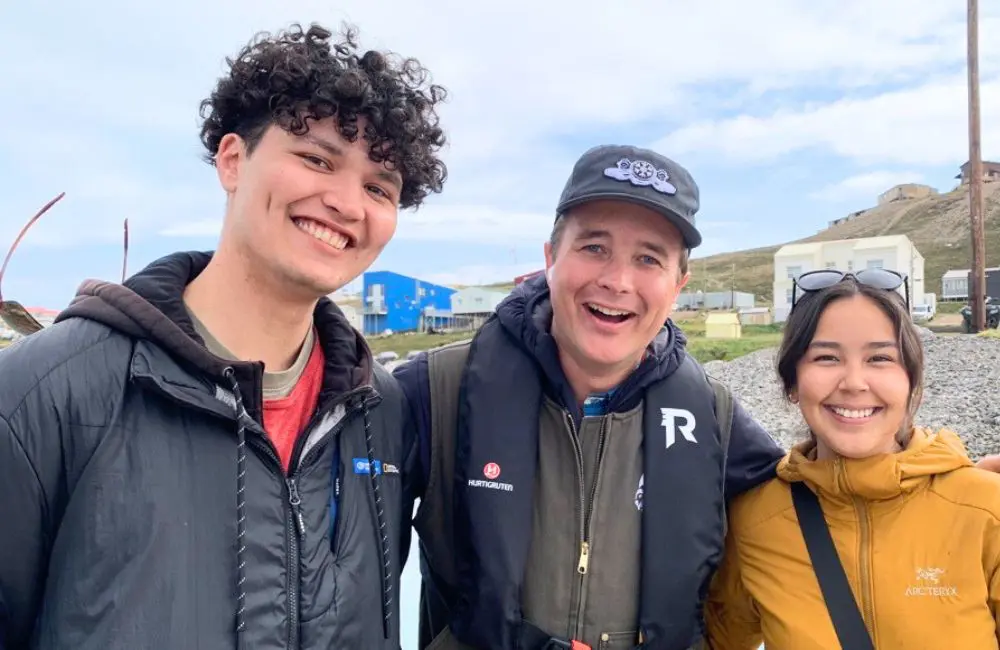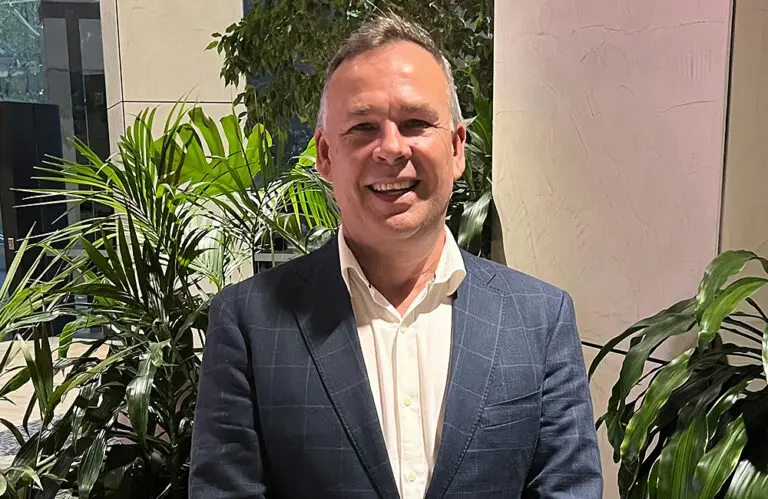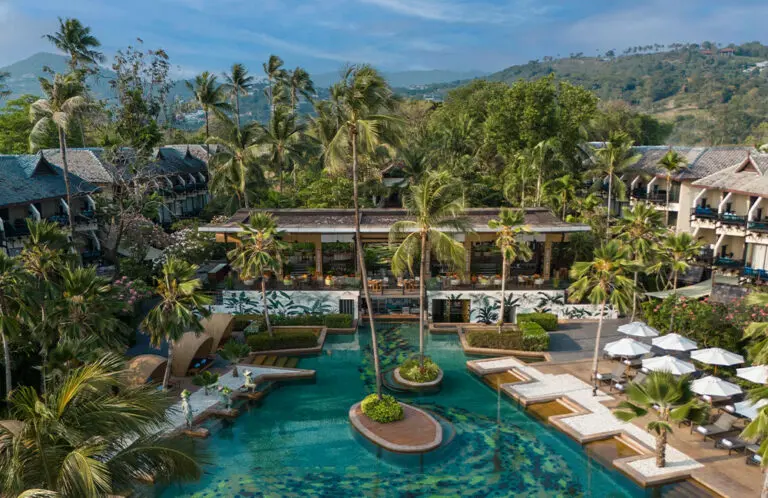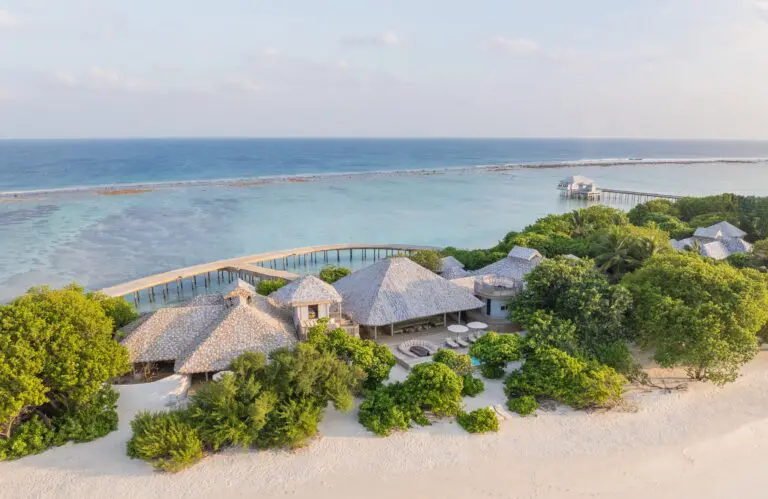HX Hurtigruten Expeditions Chief Expedition Officer, Alex McNeil talks about the importance of connecting with local communities, leadership in sustainability and the expedition cruise boom.
Having lived and worked in Canada, Mexico, Argentina, Russia and Australia from a young age, it’s not surprising that Alex McNeil (pictured middle of main image with Inuit guide and Community Ambassador, Michael Milton, and HX’s Mariah Erkloo) wound up with a successful job in adventure travel – although that was never a plan.
“My first career was a carpenter, and I met a former expedition leader who said they were looking for talented young people and asked if I would be interested. I said, no, but fast-forward a few months and I was at a dinner party with a family friend who worked for the same company and she urged me to make it happen.
“She was so impassioned I took her advice and started with a volunteer posting in Antarctica in 2007.”

“It was my gateway into expedition cruising, and it changed my life. I really fell in love with the industry the following summer when I went to Nunavut for the first time.
“As a Canadian travelling in my own country, it was mind-boggling to fly for hours and still be in Canada. I found myself in a traditional community that was still actively harvesting from the land and speaking a language (Inuktitut) I had never heard before. It was eye-opening, to say the least.”
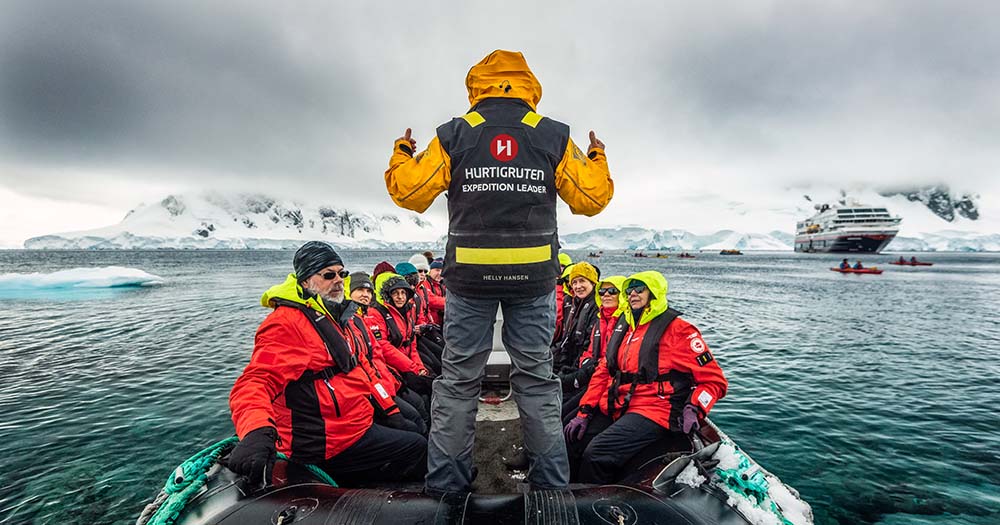
Collaborating with communities
In January 2023, 15 years and many expeditions later, McNeil joined HX and is now based in Toronto. In his role as Chief Expedition Officer (CXO) he reports to HX CEO, Gebhard Rainer and leads teams in London, Seattle, Hamburg, Tallinn, Greenland, Nunavut, Norway, Spain and beyond.
“My direct team is made up of about 30 talented people who cover product management and planning, deployment, tour operations and guest insights, to name a few.
“Ultimately, I want to ensure Hurtigruten Expeditions (HX) guests experience the journey of a lifetime while working closely with the communities we visit.”
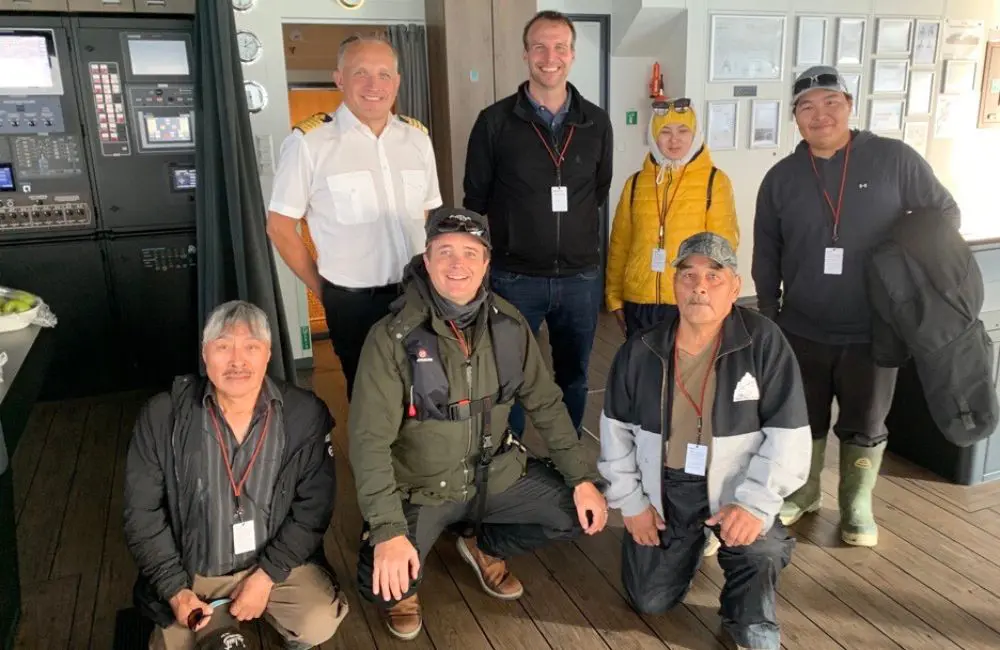
McNeil says HX places significant emphasis on collaborating with local communities, governments and organisations.
“These partnerships not only provide us with unrivalled access to the destinations we visit, but also play a crucial role in contributing to sustainable development. In the last year, we have evolved our offerings considerably in Greenland, Svalbard and, most recently, Alaska.
“But the thing that I’m most proud of is that we became the first company of our size to employ representatives in Greenland and Nunavut to lead our strategies there. Ultimately, it allows us to offer guests a more personalised and authentic experience.”
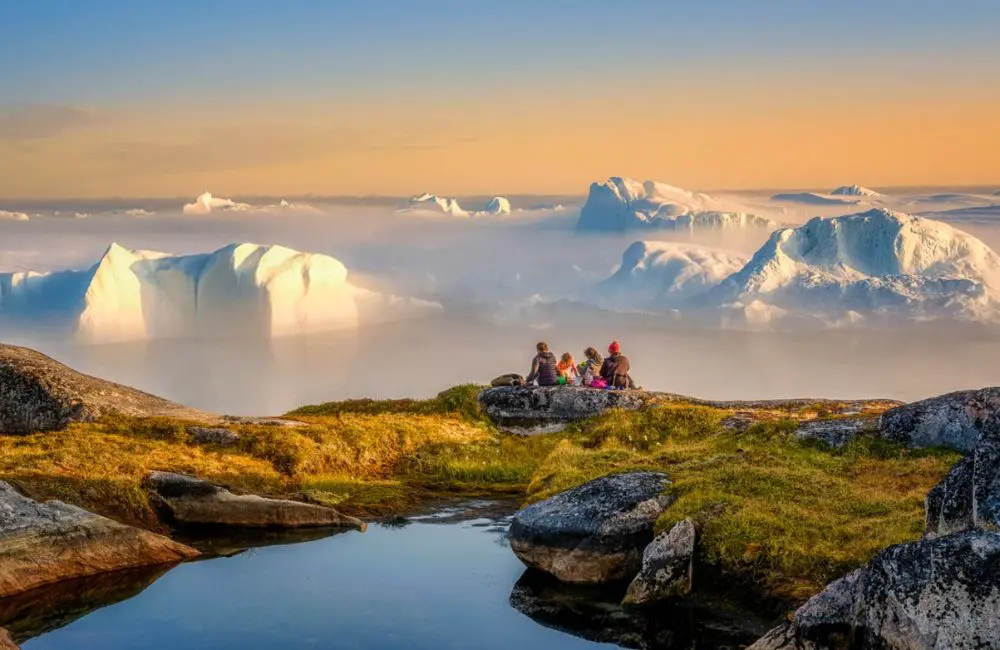
New Greenland itineraries and partnerships
Relationships with Inuit communities are very close to McNeil’s heart and he is excited about Greenland as an HX destination.
“Greenland stands to become the first sovereign Indigenous nation in the Arctic, and we want to be part of that journey and demonstrate how expedition, cruise and tourism at large can be a force for good.”
HX is the first company to partner with Air Greenland, the domestic airline owned by the Greenlandic people. Air Greenland is planning to open three new airports, the first being in Nuuk, Greenland’s capital.
In 2025 new itineraries will sail direct from Nuuk airport, “which brings us right into the centre of the action from day one”.

“Then we’re exploring northward from there in the same spirit of the European explorers who came of age in the late 1800s and early 1900s, around the time Hurtigruten was established (1896). HX is honouring those explorers who were among the first Europeans to recognise the ingenuity and capability of the indigenous people in the Arctic.”
McNeill says that in places such as Greenland and Nunavut, tourism offers a unique opportunity to develop new, sustainable economic pathways. He also relishes the time he spends in Inuit communities.
“It’s an expressive and welcoming culture, and I’ve found myself in giggling fits with teenagers and elders simultaneously. We enjoy language-agnostic activities such as cooking, ping pong and Arctic games, and it’s so hospitable and fun.
“When visitors can connect on a personal level through humour and laughter, it is a really special experience.”
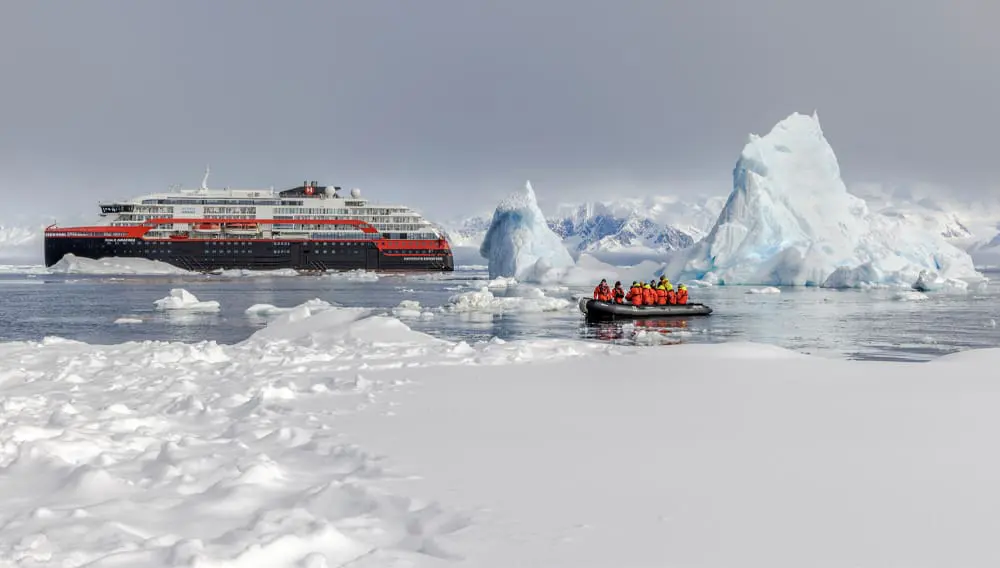
Sustainability – a driving change
McNeil has seen many changes in expedition cruising during the 15 years he has worked in the sector, most notably the drive towards more sustainable travel.
“Advocating for and implementing more sustainable practices across all aspects of our expeditions, from ship operations to onshore activities, is one of our highest priorities at HX – along with the safety and wellbeing of our guests and staff.
“When I started, 80 per cent of the ships were repurposed Russian vessels. Very few were purpose-built expedition ships. Now, companies are building ships specifically for expedition cruising.
“I’ve just returned from a segment of the Northwest Passage aboard MS Fridtjof Nansen, which is a phenomenal voyage from Reykjavik to Nome, and we were blessed to see so many polar bears throughout the expedition. The cabins and suites on our ships are fantastic – really modern and spacious with great Scandinavian aesthetics – so you can have your expedition adventure but in comfort and style.”
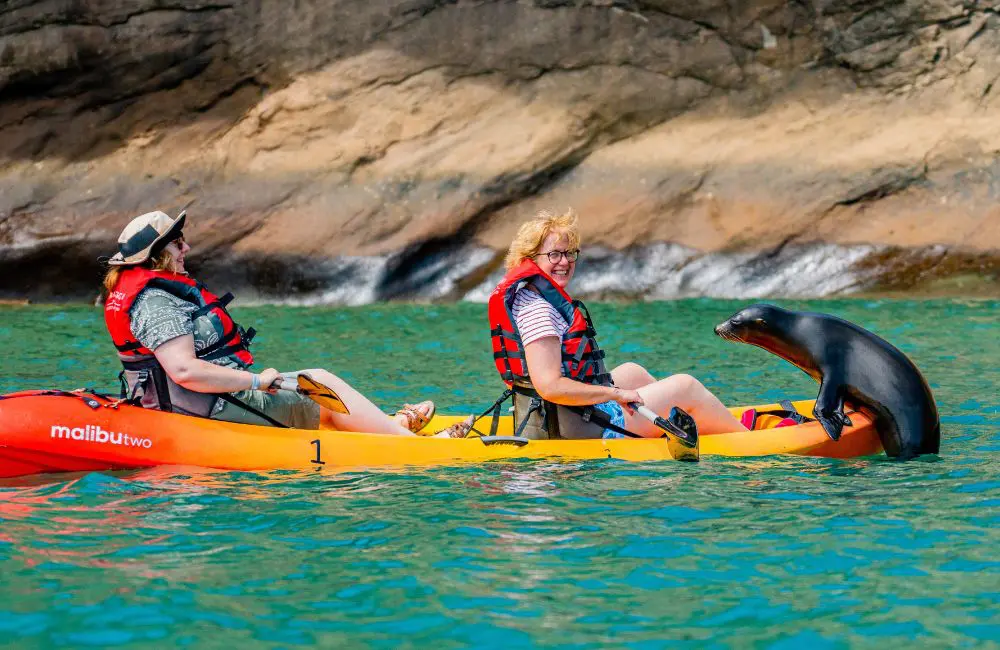
Why expedition cruising is booming
McNeill believes much of the appeal of expedition cruising is about self-discovery.
“When done well, it provides deeper, more connected experiences for travellers – it acts as something that can change mindsets and broaden horizons (mentally and physically).
“Unlike standard cruises that prioritise more passive ways of travelling, HX’s primary focus is on engaging with science, nature, wildlife, education and local communities through excursions in the places we visit. Expedition vessels are also typically smaller in size, allowing us to access destinations that larger cruise ships cannot reach.”
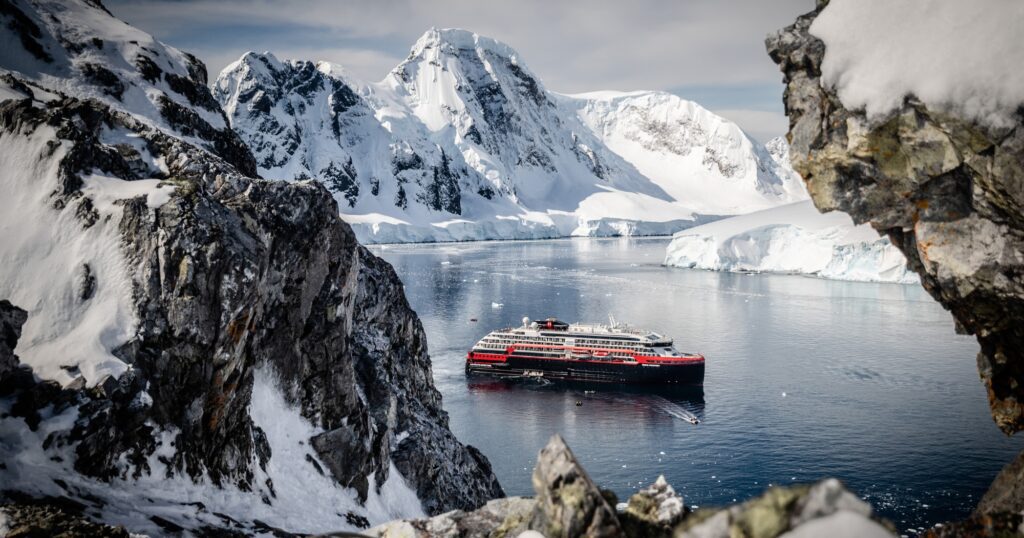
He has some memorable words of advice for first-time expedition cruisers, too.
“Having been stranded a number of times in obscure places when I was younger (before my HX time), the lesson I’d suggest to any future expedition traveller is that if you’re ever on the ship and the expedition leader says, ‘Sorry, conditions have changed, we can’t go out’, be grateful; it’s much better to stay on the ship and not be able to get ashore than to be stuck on shore, unable to return to the ship.”
For more information, visit travelhx.com



